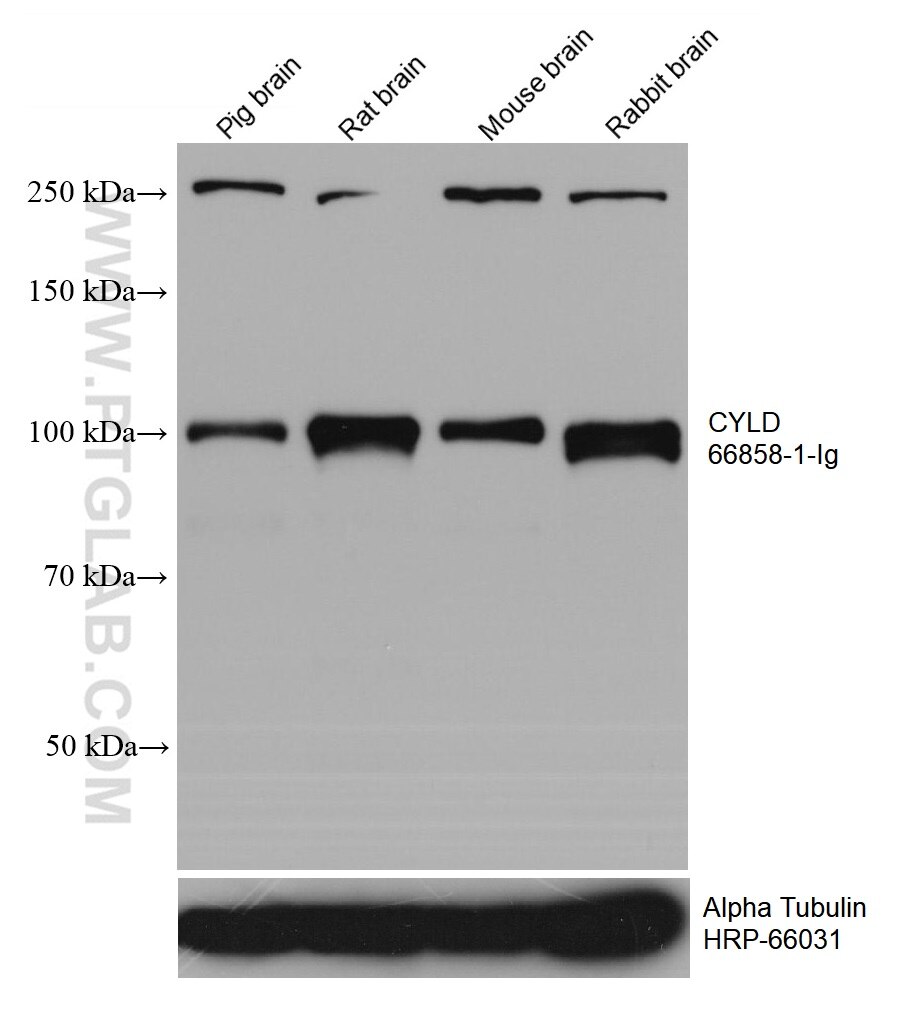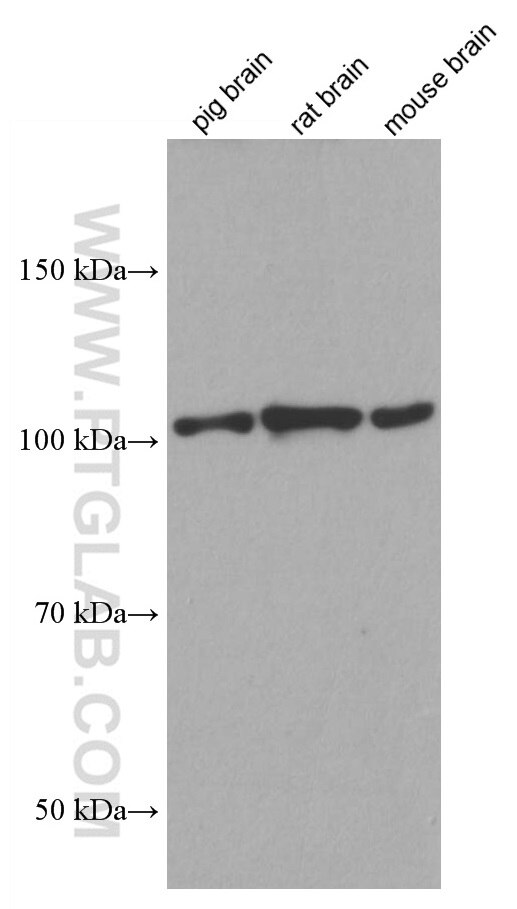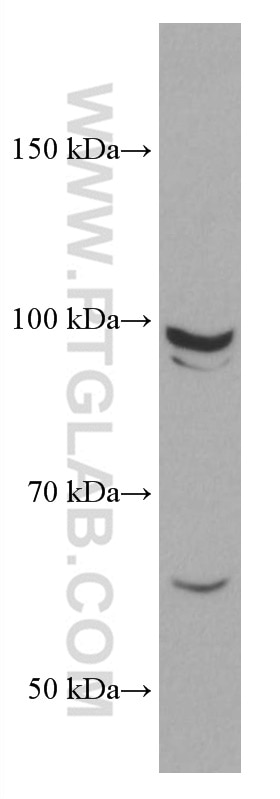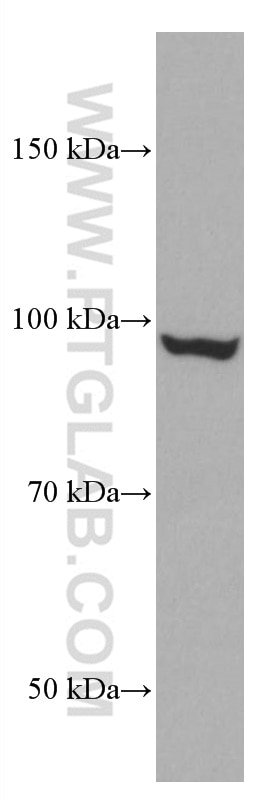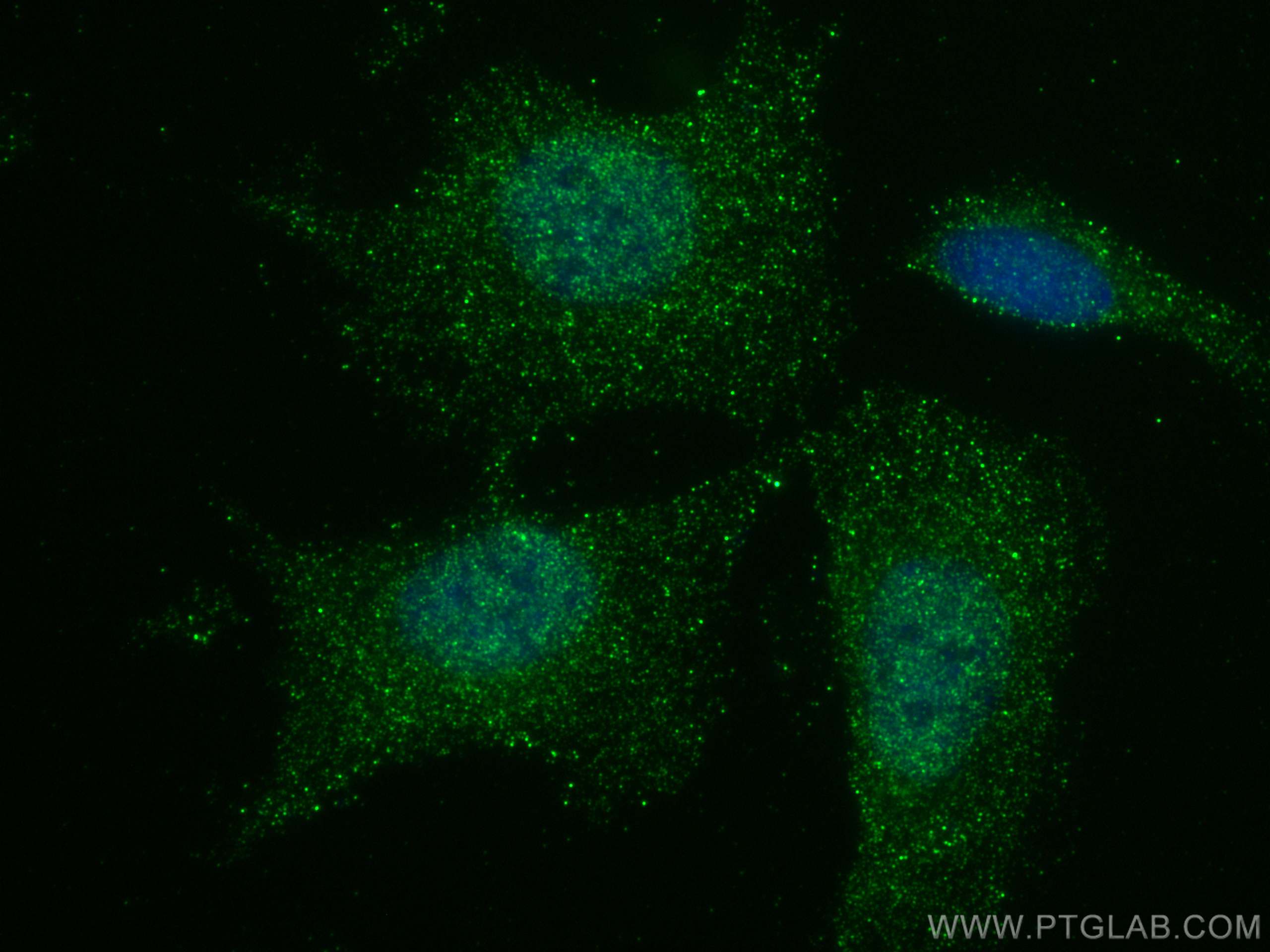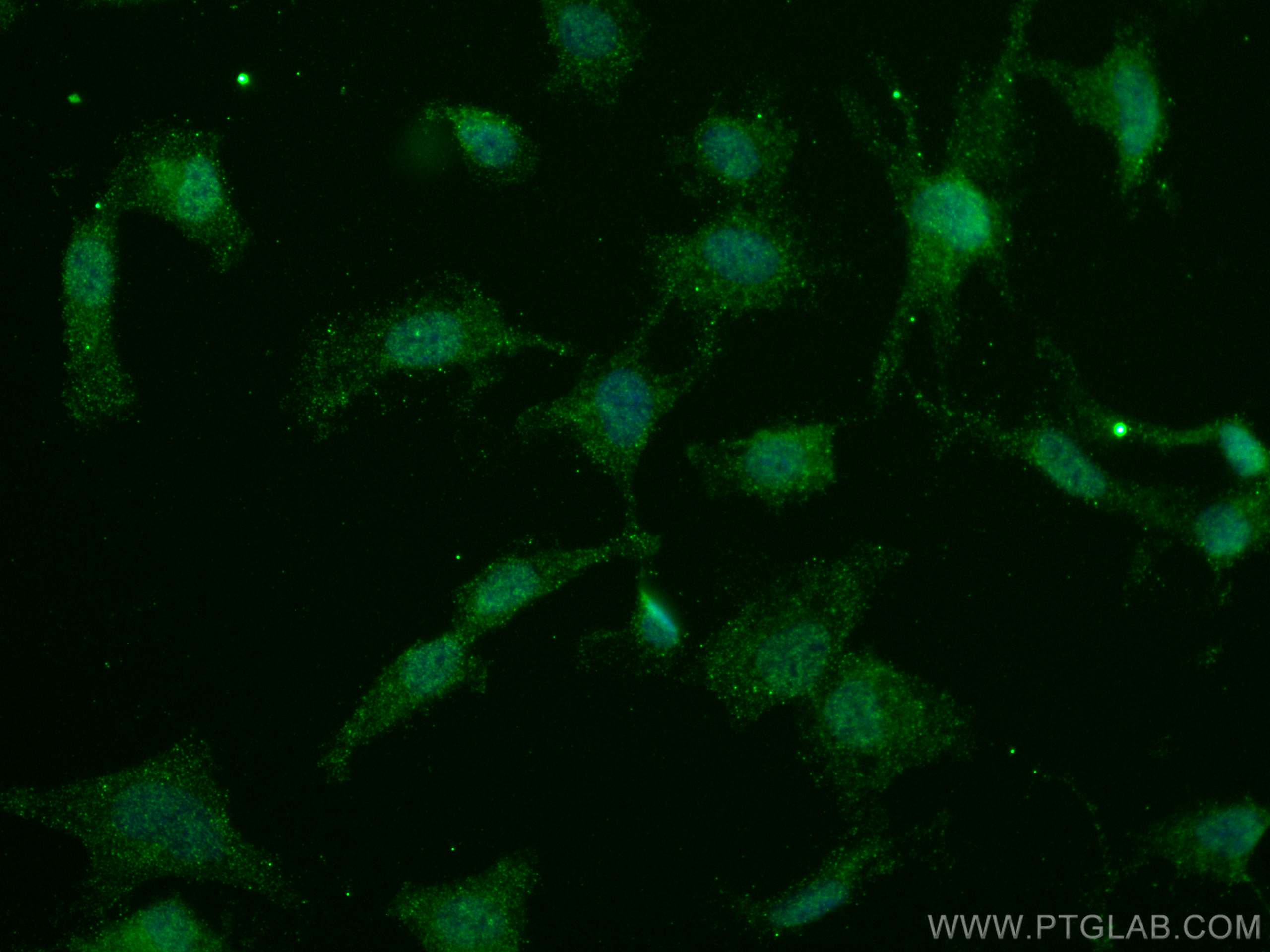Anticorps Monoclonal anti-CYLD
CYLD Monoclonal Antibody for WB, IF/ICC, ELISA
Hôte / Isotype
Mouse / IgG2a
Réactivité testée
Humain, Lapin, porc, rat, souris
Applications
WB, IF/ICC, ELISA
Conjugaison
Non conjugué
CloneNo.
1G2F4
N° de cat : 66858-1-Ig
Synonymes
Galerie de données de validation
Applications testées
| Résultats positifs en WB | tissu cérébral de porc, cellules A431, cellules HEK-293, tissu cérébral de lapin, tissu cérébral de rat, tissu cérébral de souris |
| Résultats positifs en IF/ICC | cellules SH-SY5Y, |
Dilution recommandée
| Application | Dilution |
|---|---|
| Western Blot (WB) | WB : 1:1000-1:6000 |
| Immunofluorescence (IF)/ICC | IF/ICC : 1:50-1:500 |
| It is recommended that this reagent should be titrated in each testing system to obtain optimal results. | |
| Sample-dependent, check data in validation data gallery | |
Informations sur le produit
66858-1-Ig cible CYLD dans les applications de WB, IF/ICC, ELISA et montre une réactivité avec des échantillons Humain, Lapin, porc, rat, souris
| Réactivité | Humain, Lapin, porc, rat, souris |
| Hôte / Isotype | Mouse / IgG2a |
| Clonalité | Monoclonal |
| Type | Anticorps |
| Immunogène | CYLD Protéine recombinante Ag28333 |
| Nom complet | cylindromatosis (turban tumor syndrome) |
| Masse moléculaire calculée | 107 kDa |
| Poids moléculaire observé | 110 kDa |
| Numéro d’acquisition GenBank | BC012342 |
| Symbole du gène | CYLD |
| Identification du gène (NCBI) | 1540 |
| Conjugaison | Non conjugué |
| Forme | Liquide |
| Méthode de purification | Purification par protéine A |
| Tampon de stockage | PBS with 0.02% sodium azide and 50% glycerol |
| Conditions de stockage | Stocker à -20°C. Stable pendant un an après l'expédition. L'aliquotage n'est pas nécessaire pour le stockage à -20oC Les 20ul contiennent 0,1% de BSA. |
Informations générales
CYLD, also named as CYLD1, belongs to the peptidase C67 family. It is the protease that specifically cleaves 'Lys-63'-linked polyubiquitin chains. CYLD has endodeubiquitinase activity and plays an important role in the regulation of pathways leading to NF-kappa-B activation. CYLD contributes to the regulation of cell survival, proliferation and differentiation via its effects on NF-kappa-B activation. It is a negative regulator of Wnt signaling. CYLD inhibits HDAC6 and thereby promotes acetylation of alpha-tubulin and stabilization of microtubules. CYLD plays a role in the regulation of microtubule dynamics, and thereby contributes to the regulation of cell proliferation, cell polarization, cell migration, and angiogenesis. It is required for normal cell cycle progress and normal cytokinesis. CYLD inhibits nuclear translocation of NF-kappa-B and plays a role in the regulation of inflammation and the innate immune response, via its effects on NF-kappa-B activation. It is dispensable for the maturation of intrathymic natural killer cells, but required for the continued survival of immature natural killer cells. CYLD negatively regulates TNFRSF11A signaling and osteoclastogenesis.
Protocole
| Product Specific Protocols | |
|---|---|
| WB protocol for CYLD antibody 66858-1-Ig | Download protocol |
| IF protocol for CYLD antibody 66858-1-Ig | Download protocol |
| Standard Protocols | |
|---|---|
| Click here to view our Standard Protocols |
